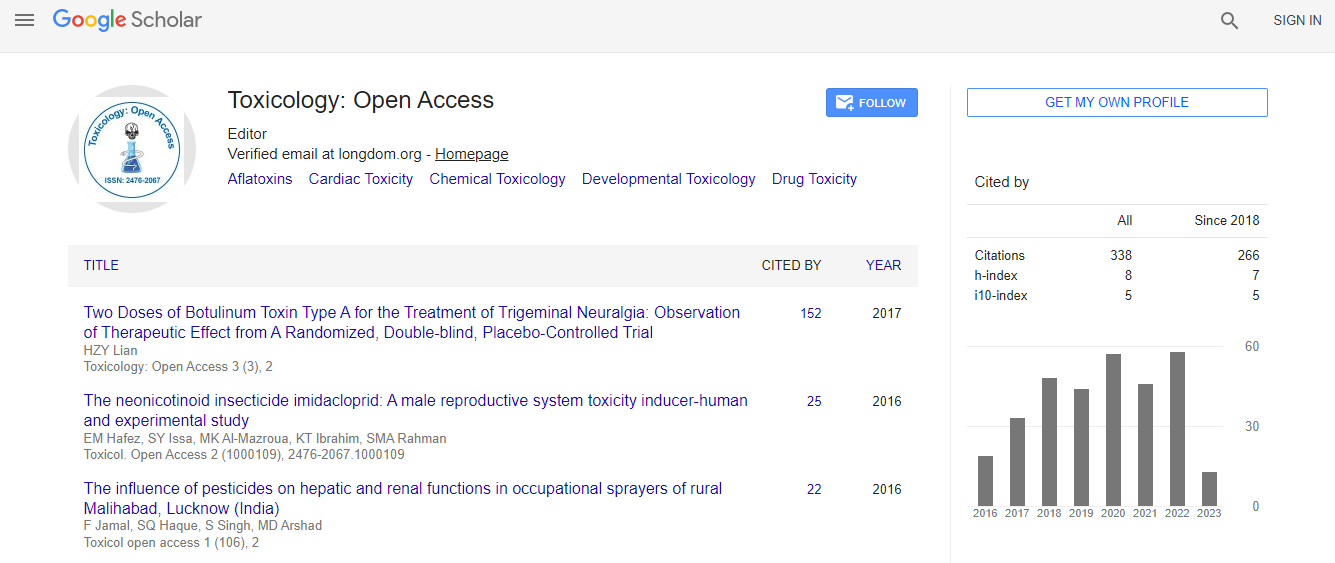Short Communication
The Role of Systematic Review in the Practice of Toxicology and Risk Assessment–An Appreciation for the Primary Tool in Evidence-Based Practice
Wikoff DS1* and Britt JK21ToxStrategies, Austin, TX, USA
- *Corresponding Author:
- Wikoff DS
ToxStrategies, Austin, TX, USA
Tel: 866 764 5840
E-mail: dwikoff@toxstrategies.com
Received date: Jan 24, 2016 Accepted date: Feb 25, 2016 Published date: Feb 27, 2016
Citation: Wikoff DS, Britt JK (2016) The Role of Systematic Review in the Practice of Toxicology and Risk Assessment–An Appreciation for the Primary Tool in Evidence-Based Practice. Toxicol open access 2:110. doi:10.4172/2476-2067.1000110
Copyright: © 2016 Wikoff DS, et al. This is an open-access article distributed under the terms of the Creative Commons Attribution License, which permits unrestricted use, distribution, and reproduction in any medium, provided the original author and source are credited.
Abstract
Use of systematic reviews (SRs) as a tool to facilitate evidence-based toxicology (EBT) assessments is increasing, though the field has yet to develop an appreciation of the rigor required to appropriately utilize this tool. Toxicologists should recognize the weight of the term, understanding that a systematic review involves far more than conducting elements of a review systematically. Key aspects that appear to be currently underappreciated include development and publication of a protocol, the level of documentation involved in the conduct of a SR, and the overall level of effort required to maintain standards of SR. As many regulatory agencies and health organizations integrate systematic review into their procedures, it is clear that there is a need to develop best-science practices in EBT, as the methods developed for evidence-based medicine (EBM) do not always provide the best platform for evaluation of toxicological data. Such efforts are particularly needed for evidence integration, methods which allow for integration of multiple types of data, as well as application of the SR in both qualitative and quantitative hazard or risk assessments. Nonetheless, use of systematic review is advancing the field of toxicology, providing objectivity and transparency in evidence-based assessments.

 Spanish
Spanish  Chinese
Chinese  Russian
Russian  German
German  French
French  Japanese
Japanese  Portuguese
Portuguese  Hindi
Hindi 